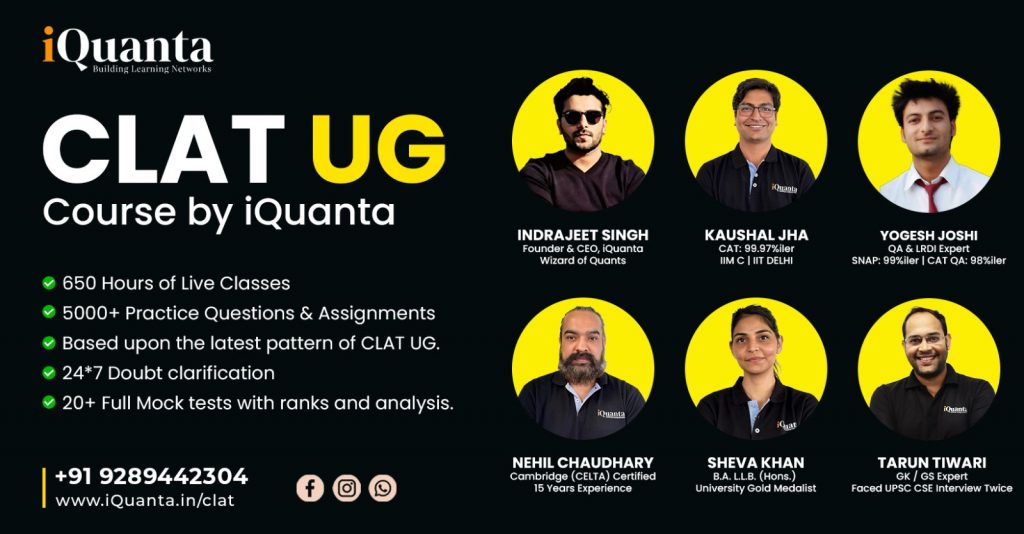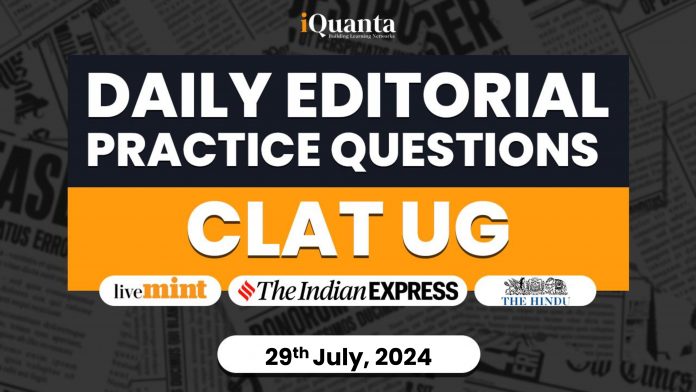Passage 1
Stereotyping differently-abled persons in visual media and films perpetuates discrimination and inequality, the Supreme Court said on Monday while asking filmmakers to refrain from misleading portrayal of such persons and not to lampoon them. The top court said language that disparages persons with disabilities, marginalises them further and supplements the disabling barriers in their social participation must be approached with caution. A bench headed by Chief Justice D Y Chandrachud said words cultivate institutional discrimination and terms such as “cripple” and “spastic” have come to acquire devalued meanings in societal perceptions about persons with disabilities. They contribute to the negative self-image and perpetuate discriminatory attitudes and practices in society, the apex court said while enumerating a framework of the portrayal of persons with disabilities in visual media.
“Language that individualises the impairment and overlooks the disabling social barriers (e.g. terms such as “afflicted”, “suffering”, and “victim”) should be avoided or adequately flagged as contrary to the social mode.
“Creators must check for accurate representation of a medical condition as much as possible. The misleading portrayal of what a condition such as night blindness entails may perpetuate misinformation about the condition, and entrench stereotypes about persons with such impairments, aggravating the disability,” the bench also comprising Justice J B Pardiwala said. Observing that persons with disabilities are under-represented, the top court said average people are unaware of the barriers persons with disabilities face. “Visual media must reflect their lived experiences. Their portrayal must capture the multitudes of their lived realities, and should not be a uni-dimensional, ableist characterisation. “Visual media should strive to depict the diverse realities of persons with disabilities, showcasing not only their challenges but also their successes, talents, and contributions to society. This balanced representation can help dispel stereotypes and promote a more inclusive understanding of disability,” the bench said. It said such portrayals should reflect the multi-faceted lives of persons with disabilities, emphasising their roles as active community members who contribute meaningfully across various spheres of life. “By highlighting their achievements and everyday experiences, media can shift the narrative from one of limitation to one of potential and agency. “They should neither be lampooned based on myths (such as, ‘blind people bump into objects in their path’) nor presented as ‘super cripples’ on the other extreme.
Source: https://timesofindia.indiatimes.com/india/stereotyping-
Get CLAT Online Coaching!

Passage 2
India and Russia agreed to increase bilateral trade to $100 billion dollars by 2030, including the use of national currencies to circumvent Western sanctions, as Prime Minister Narendra Modi and Russian President Vladimir Putin sat down for the [1] Annual Summit here on Tuesday. This was their first meeting since the war in Ukraine began two years ago, and Mr. Modi made a “pained” plea for an end to civilian deaths and the conflict. In addition, sources said Mr. Putin accepted a direct request from Mr. Modi to expedite the discharge of all Indians who have been recruited by the Russian military, many of whom are now at the war front, where four Indians have been killed this year. However, the assurance did not find a mention in the joint statement, and Foreign Secretary Vinay Kwatra said that the decision to speed up military discharges for approximately 40 men still at the war front would be “worked through the processes” through diplomatic discussions. In their joint statement, India and Russia highlighted the need for a peaceful resolution of the “conflict around Ukraine”, the phrase reflecting Russia’s claims. “They noted with appreciation relevant proposals of mediation and good offices aimed at peaceful resolution of the conflict in accordance with international law and on the basis of the UN Charter,” the statement read.
The meeting between India and Russia came under attack from Kyiv where Ukrainian President called Mr. Modi’s warm embrace of Mr. Putin a “devastating loss” to the peace process, on a day when Ukraine accused Russia of missile strikes, including on a children’s hospital, and from Washington where the U.S. State Department raised “concerns” over India’s ties with Russia. In comments at the beginning of the summit in Moscow, Mr. Modi addressed some of those concerns by saying that he felt “pained” by the loss of civilian lives especially “innocent children”, which he said made his heart “explode”. ”Whether it is war, conflict or a terrorist attack, any person who believes in humanity, is pained when there is loss of lives, especially when innocent children die,” Mr. Modi said, without directly referencing Monday’s missile attacks. He also said that he believed that “no solution to the Ukraine conflict could be found on the battlefield”, adding that he left Moscow “with hope” after his talks with Mr. Putin.
In response, Mr. Putin said he “appreciated” Mr. Modi’s efforts to find a peaceful solution to the conflict, but gave no assurances.
Mr. Modi also made a particular mention of Russia’s support to India despite the pandemic and geopolitical flux that had helped India avert a crisis in “food, fuel and fertilizer” supplies, and thanked Mr. Putin for his leadership.
Source: https://www.thehindu.com/news/national/india-russia-to-

Enroll for CLAT Online Coaching by iQuanta

